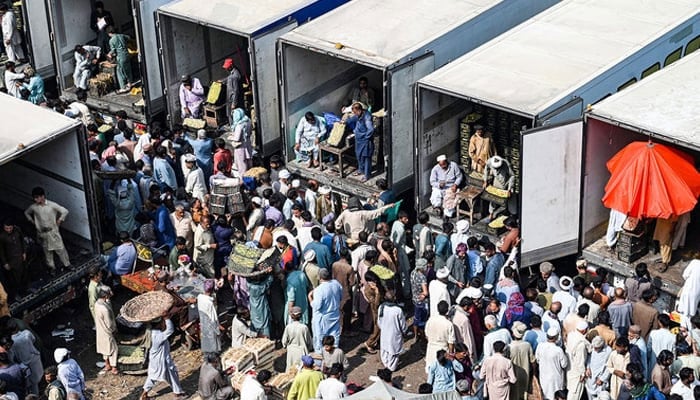Compliance dilemma
LAHORE: Fully compliant businesses are so scared of government departments that they do not come forward openly to share the irregularities in these institutions. They reveal the exploitation they face anonymously.
In Pakistan, there are businesses that do not pay any tax and fall under the category of tax evaders, then there are businesses that conceal a significant part of their income and pay taxes on the remainder. They usually do so with connivance of tax officials who get regular rent from them.
Tax evasion from this segment is probably a shade lower than tax evaders. Then there are fully compliant tax-paying businesses that follow tax laws but they also have to pay ‘rents’ at some places simply to speed up things.
What should honest businesses do in Pakistan since they have to ‘please’ the officials even if they file a tax return with complete documentation? They have even to pay the rent to social security officials despite having a complete record of employees.
Under current circumstances, it is impossible to operate transparently because the bribe that even a medium-sized business has to pay runs in millions. They cannot document the money paid in their financial reports so they conceal income to fill the coffers of bureaucrats.
We have to reform the bureaucracy who act like thugs. Businesses are brought in line through arm twisting just like the poor are made to accept the crime they never committed. Social security officers would not give them a clean chit even if they pay the social security of their eligible staff members. They are asked to reduce the number of employees they register for social security and instead pay them half the amount they save. This perhaps is the reason that the number of workers registered in social security is less than two million against the workforce of over 75 million in the country.
The government is trying to facilitate the industries by ensuring uninterrupted power supply as there is sufficient power available in the system. But in practice frequent surges (not loadshedding but a temporary cut off of power for a few minutes) still occur on a daily basis due to ‘technical faults’.
These surges disappear when the grid staff is sufficiently compensated by the affected industries.In the same way, after regular RLNG imports, the supply to industries cannot be denied but trouble can be created by keeping the supplies at low pressure. Power generator sets do not function on low pressure. The pressure is increased for ‘compliant’ industries but those that do not oblige continue to suffer.
Refunds of all kinds always remained a problem in Pakistan. Ideally, refunds should be automatic for all taxpayers whenever they are due. Salaried persons do not get refunds of the taxes collected on their utility bills and other purchases.
Their office deducts their tax on a monthly basis and at the end of the year, they are entitled to refunds on taxes paid by them on utility bills and other tax deductable purchases. These refunds are never made although all documents are available with the tax department.
As far as businesses are concerned, they were sometimes allowed back to apply for refunds online and the cheques were sent to them in due course. This deprived the bureaucrats of any interaction with them. Now all refunds despite complete documentation get struck up and are processed manually.
Businesses are sure that no harm will come to officials who take bribes but if the names of these whistle blowers are revealed, they would be the victim of worst-ever exploitation. It seems that the bribes collected at the lower levels are distributed at the upper level which is the reason that bribes continue unabated.
-
 What You Need To Know About Ischemic Stroke
What You Need To Know About Ischemic Stroke -
 Shocking Reason Behind Type 2 Diabetes Revealed By Scientists
Shocking Reason Behind Type 2 Diabetes Revealed By Scientists -
 SpaceX Cleared For NASA Crew-12 Launch After Falcon 9 Review
SpaceX Cleared For NASA Crew-12 Launch After Falcon 9 Review -
 Meghan Markle Gives Old Hollywood Vibes In New Photos At Glitzy Event
Meghan Markle Gives Old Hollywood Vibes In New Photos At Glitzy Event -
 Simple 'finger Test' Unveils Lung Cancer Diagnosis
Simple 'finger Test' Unveils Lung Cancer Diagnosis -
 Groundbreaking Treatment For Sepsis Emerges In New Study
Groundbreaking Treatment For Sepsis Emerges In New Study -
 Roblox Blocked In Egypt Sparks Debate Over Child Safety And Digital Access
Roblox Blocked In Egypt Sparks Debate Over Child Safety And Digital Access -
 Savannah Guthrie Addresses Ransom Demands Made By Her Mother Nancy's Kidnappers
Savannah Guthrie Addresses Ransom Demands Made By Her Mother Nancy's Kidnappers -
 OpenAI Reportedly Working On AI-powered Earbuds As First Hardware Product
OpenAI Reportedly Working On AI-powered Earbuds As First Hardware Product -
 Andrew, Sarah Ferguson Refuse King Charles Request: 'Raising Eyebrows Inside Palace'
Andrew, Sarah Ferguson Refuse King Charles Request: 'Raising Eyebrows Inside Palace' -
 Adam Sandler Reveals How Tom Cruise Introduced Him To Paul Thomas Anderson
Adam Sandler Reveals How Tom Cruise Introduced Him To Paul Thomas Anderson -
 Washington Post CEO William Lewis Resigns After Sweeping Layoffs
Washington Post CEO William Lewis Resigns After Sweeping Layoffs -
 North Korea To Hold 9th Workers’ Party Congress In Late February
North Korea To Hold 9th Workers’ Party Congress In Late February -
 All You Need To Know Guide To Rosacea
All You Need To Know Guide To Rosacea -
 Princess Diana's Brother 'handed Over' Althorp House To Marion And Her Family
Princess Diana's Brother 'handed Over' Althorp House To Marion And Her Family -
 Trump Mobile T1 Phone Resurfaces With New Specs, Higher Price
Trump Mobile T1 Phone Resurfaces With New Specs, Higher Price




